Improve number recognition Addition Worksheets for Ages 4-7
15 filtered results
-
From - To
Boost your child's math skills with our "Improve Number Recognition Addition Worksheets," designed specifically for ages 4-7. These engaging, printable worksheets provide a fun and interactive way for young learners to enhance their number recognition while mastering basic addition concepts. With colorful illustrations and simple exercises, children will enjoy practicing essential math skills that lay a strong foundation for future learning. Each worksheet helps develop the confidence and competence needed to tackle addition challenges, making math enjoyable. Visit us today to explore our collection of age-appropriate resources that spark curiosity and support early learning in a friendly and encouraging environment!
Parents and teachers should prioritize improving number recognition and addition skills for children aged 4-7 because these foundational skills form the basis for later mathematical understanding and overall academic success. Mastery of number recognition helps children identify written numbers, which is essential for counting, sorting, and basic math operations. Early development in this area enhances cognitive abilities and supports their first encounter with mathematics, setting the stage for more complex concepts in the future.
Additionally, building addition skills at this age fosters critical thinking and problem-solving abilities. As children learn to combine numbers, they strengthen their capacity to process information, recognize patterns, and apply logic, which are vital skills in all subjects. Furthermore, engaging with numbers in fun and interactive ways can foster a positive attitude towards math, reducing anxiety and promoting a love for learning.
Involving parents and teachers in this process creates a supportive environment where children feel encouraged to explore mathematics fearlessly. This partnership can result in improved academic performance, higher self-esteem, and a strong foundation for lifelong learning. Overall, focusing on number recognition and addition during these formative years is crucial for a child's educational journey and daily life competencies.


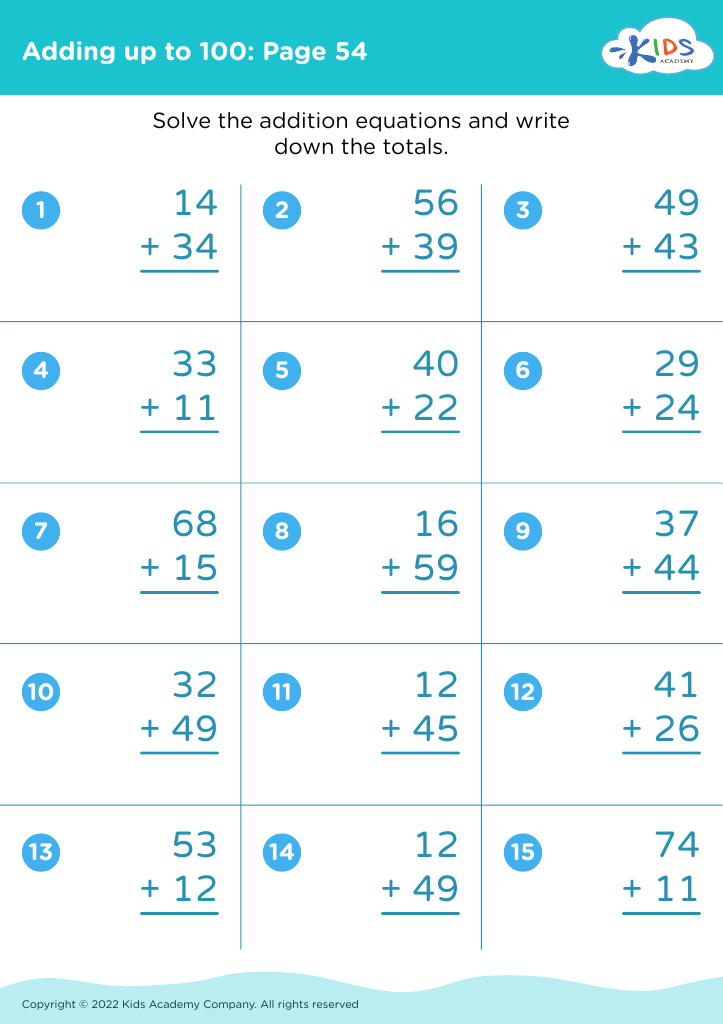
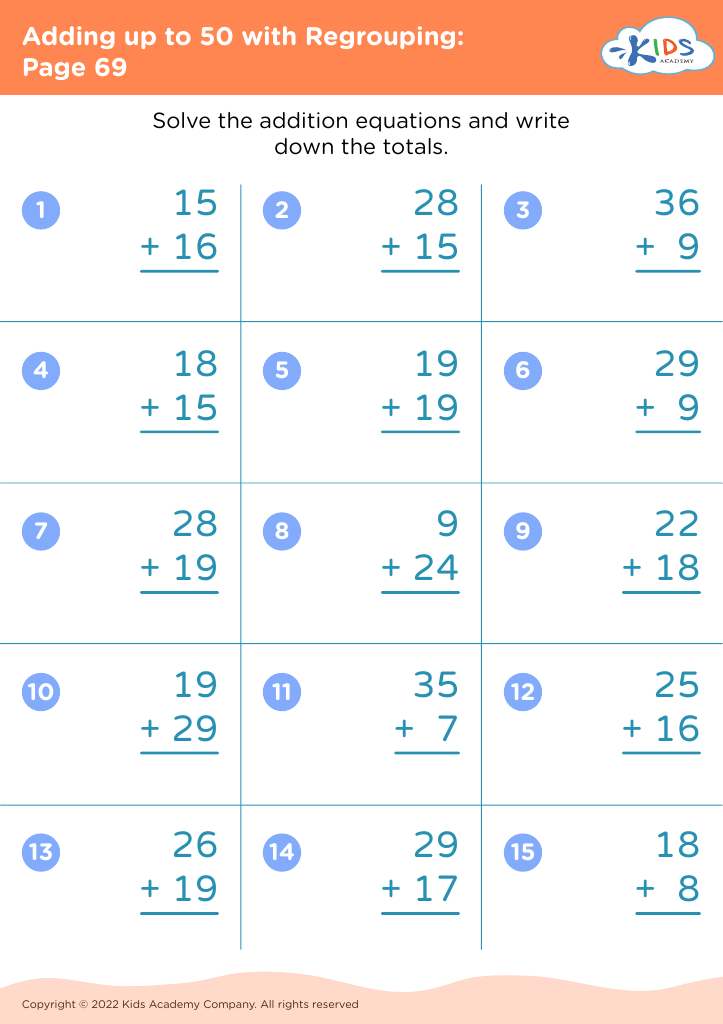
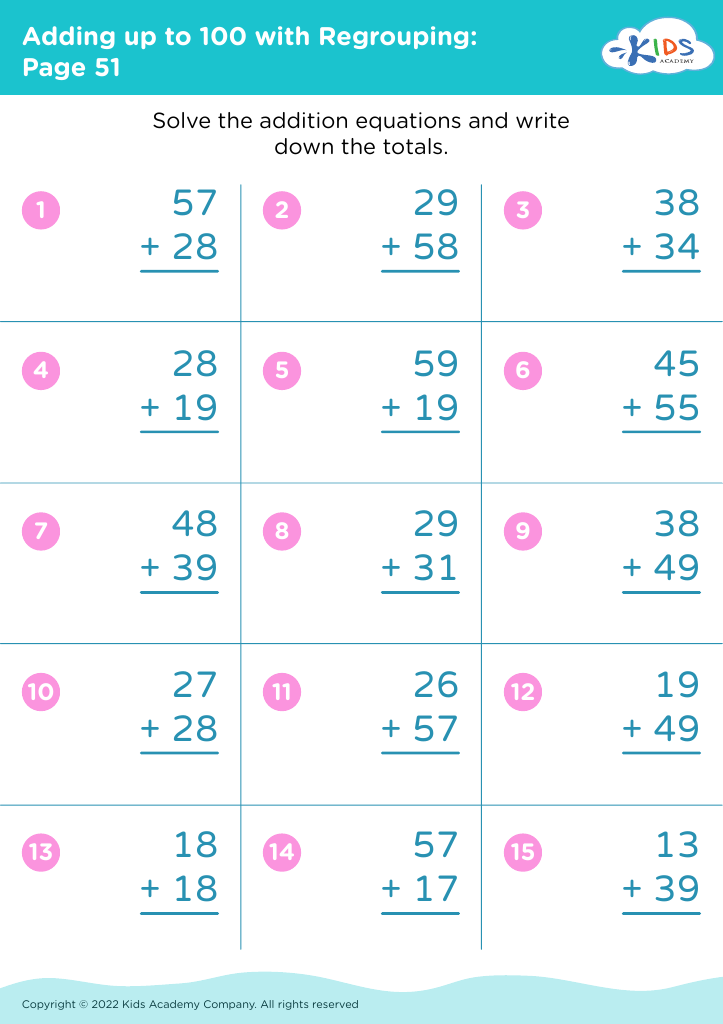
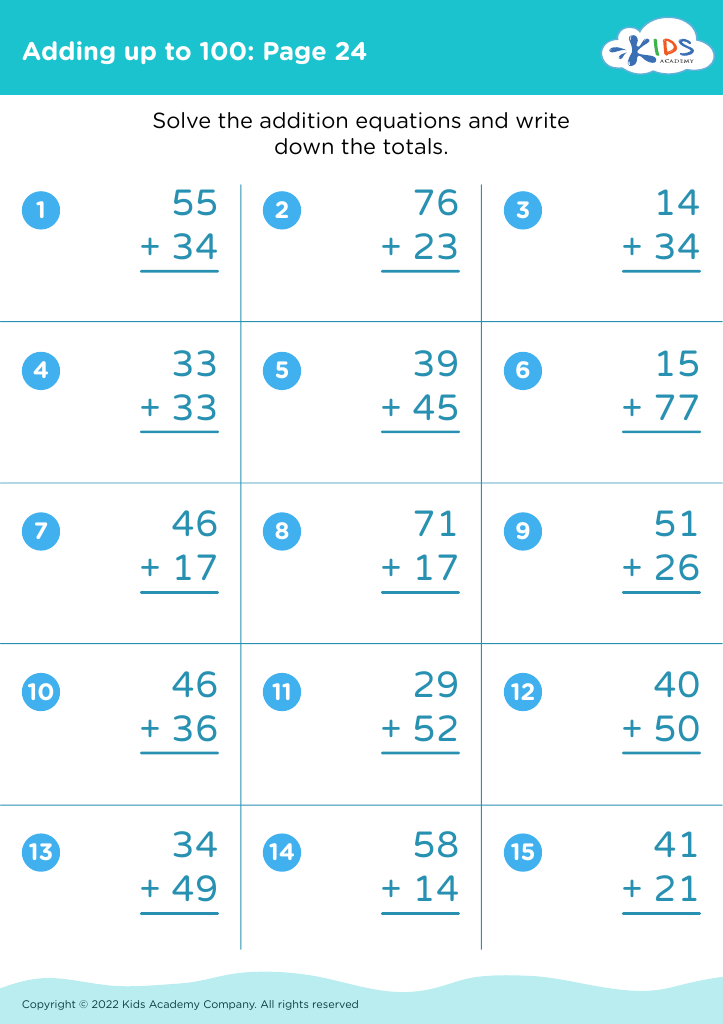



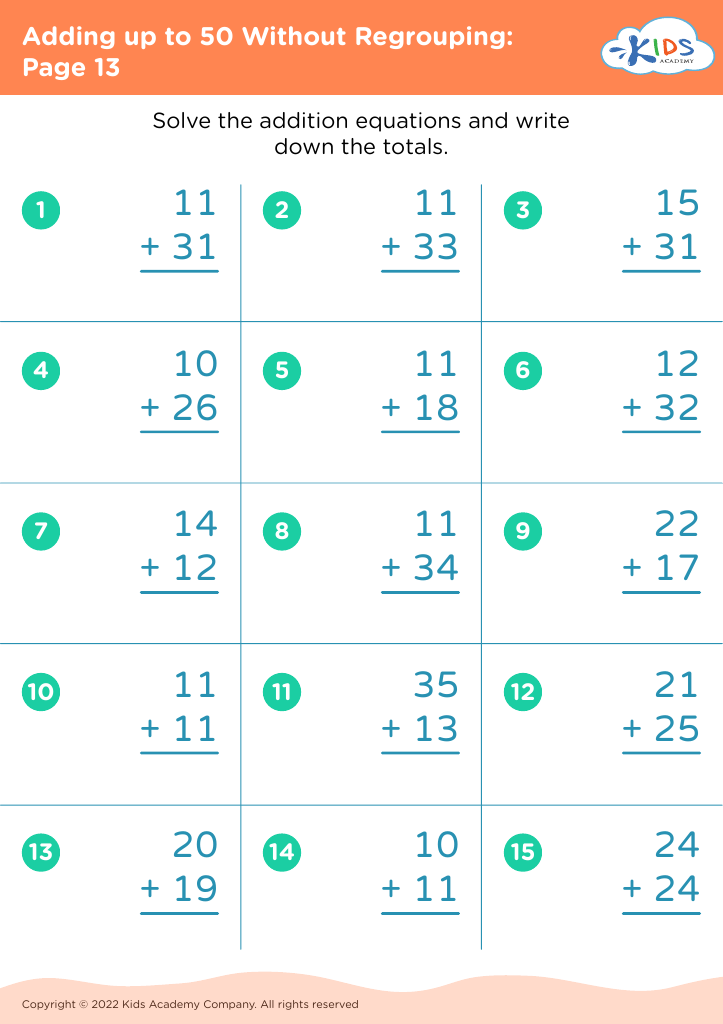
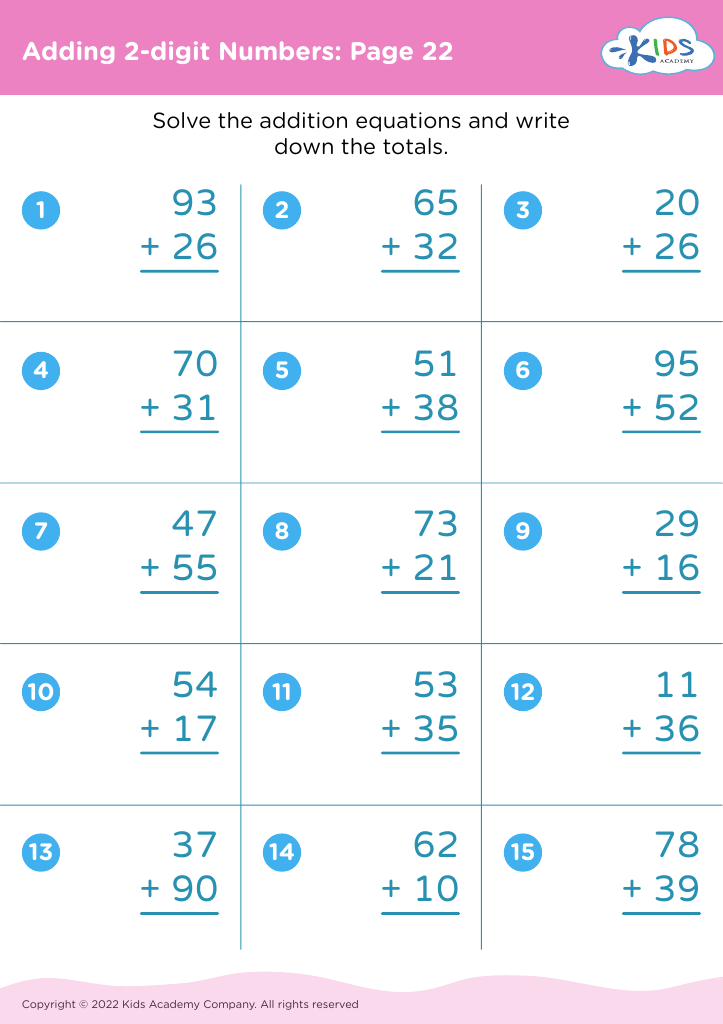




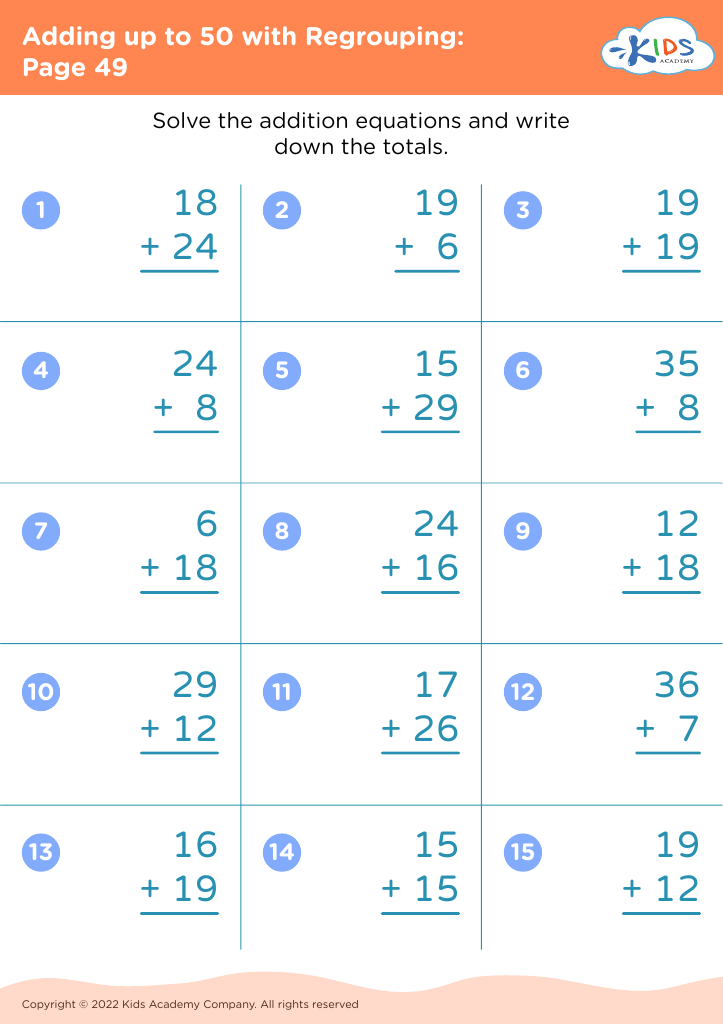
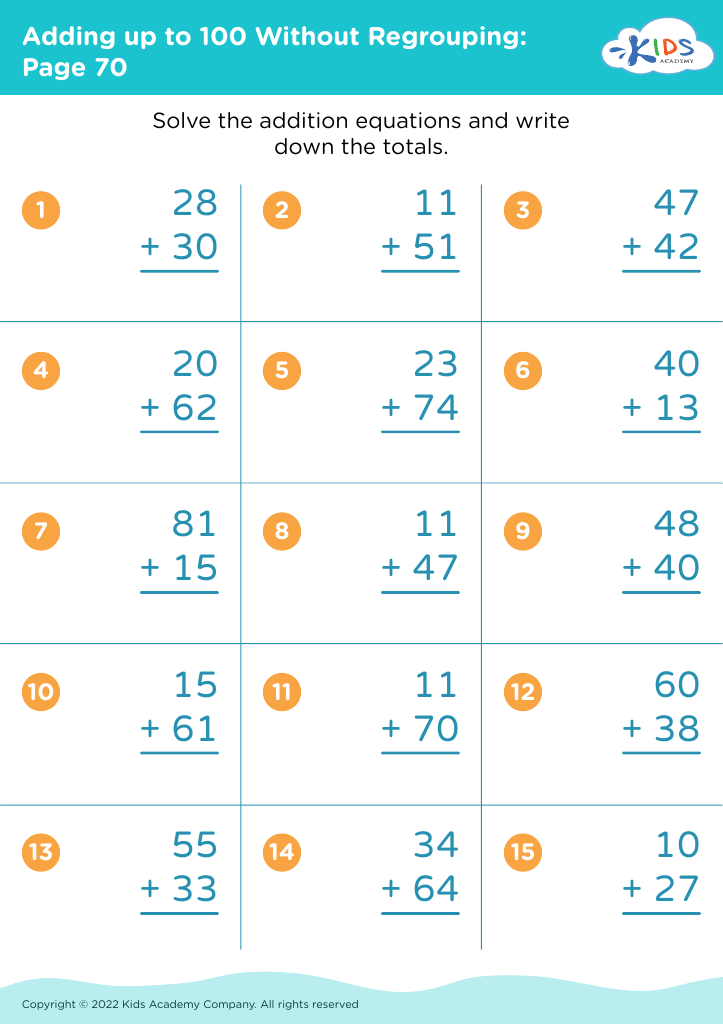
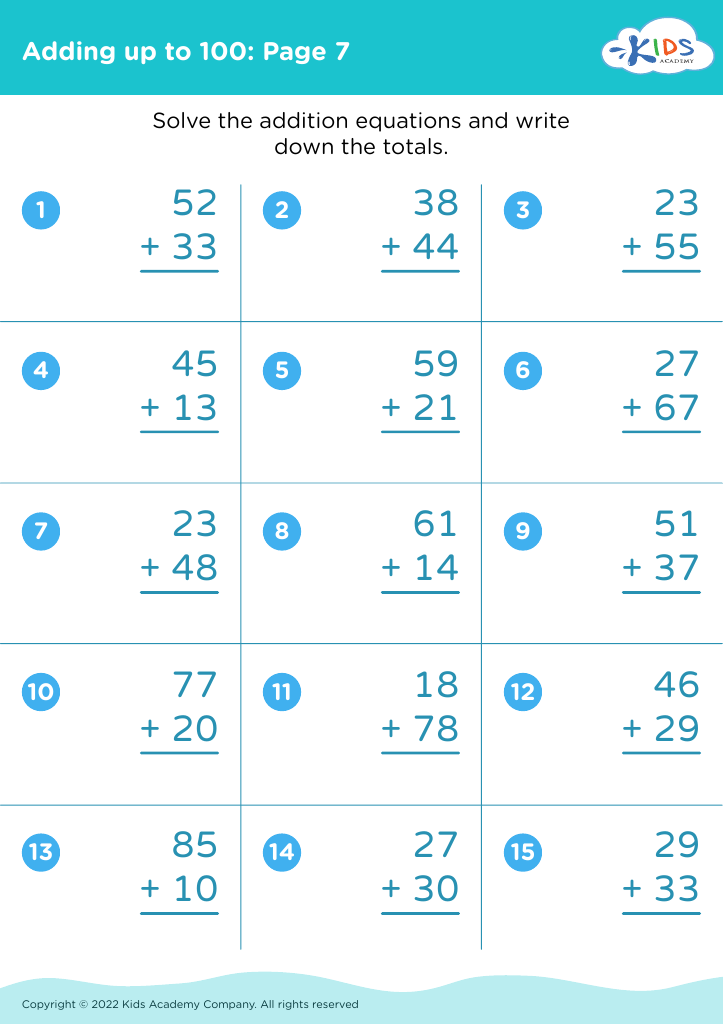








.jpg)










